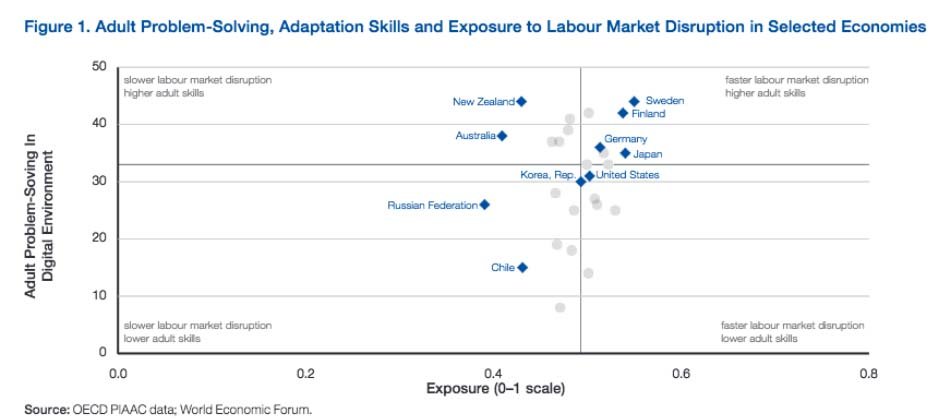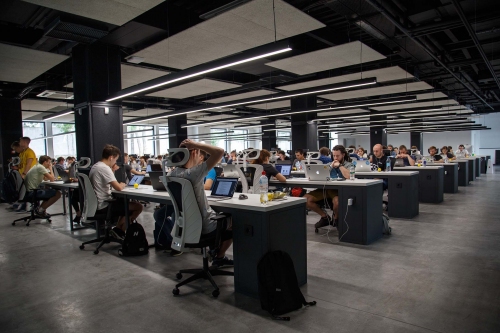Labour market exposure is driven by a variety of factors, including a country’s economic specialization; the cost incentives for incorporating automation into their supply chains; the supply, cost, and skills availability within the labour force; as well as access to and the adoption of technologies.
The paper highlights that ‘Capacities of adults for adaptation is influenced by the quality of foundational education, cost and quality of ICT connectivity, prevalence of jobs incorporating digital exposure, as well as opportunities for lifelong learning inside and outside the workplace’.
The authors found that countries in the top-right quadrant of the figure, such as Sweden, Finland, and Japan, face relatively high levels of exposure to labour market disruption, but also exhibit high levels of adult skills and technology absorption. This strong performance in future-ready adult skills is a result of the multifaceted lifelong learning systems many of these countries have put in place, which continue to support and develop adult skills over the course of their lifetime.
Countries such as New Zealand and Australia have relatively low exposure at present and relatively high ability to adapt. From my perspective this will be tested in the Australian context as much needs to be done to promote a systemic integrative development policy and roadmap for nation wide skill building. For want of a better word investment in Human Capital development needs to equate as much as other infrastructure. For a minnow in human population terms this is fundamental to staying competitive and in the game. Compare this to China’s Belt and road initiative and India’s Delhi - Mumbai Industrial Corridor and one gets an idea about foresight, scale and perspective. Human Development, Institutional Development and Growth Platforms need to work together for a country to move forward. 
Key strategies include:
Stocktake of formal and informal skills to focus the spend on development and training.
Understand and anticipate skill demand - Develop feedback loop with stakeholders to remain current.
Adopt the right mix of Financial instruments - e.g. Singapore’s lifelong learning endowment fund with an investment of $400 Million annually.
Build and sustain motivation for adult learning through active labour market policies and accessible resources.
Develop a modular and flexible approach to skill acquisition.
Harness the power and scalability of blended offline and online learning, enhanced with virtual and augmented reality when relevant.
Source: White paper - Accelerating Workforce Re-skilling for the 4th Industrial Revolution. World Economic Forum- July 2017
Adaptation and Labour Market Disruption
World Economic Forum Research assessed the relative importance of adult reskilling at the country level by examining the relative degree of labour market exposure compared with the level of adaptation skills adults have in digital environments.
Share with others …
